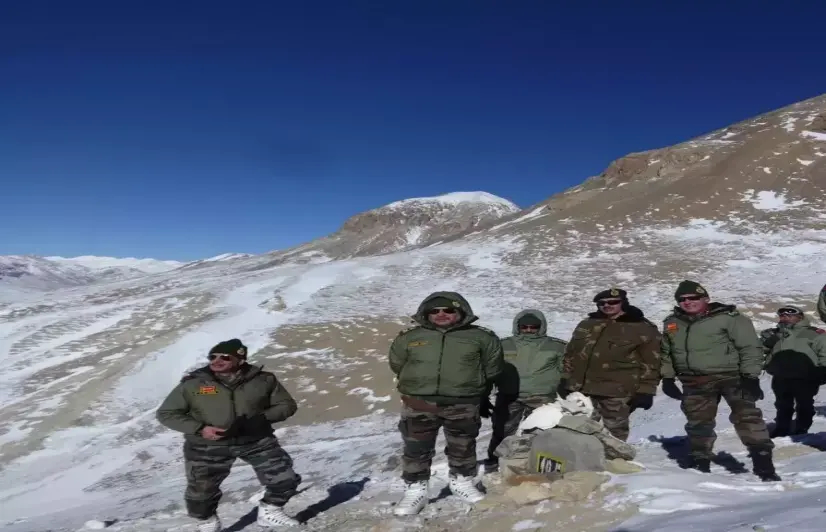Tiger hills to be reopened

Tiger hills to be reopened
Jammu: Twenty years after Tiger Hills in Kargil became famous in the entire country, the hill might soon be opened for general public as a tourist destination. Apart from this, at least 16 other peaks in Kargil that saw action during the 1999 India-Pakistan war may soon be thrown open for domestic as well as international tourists coming to admire the beauty of arid desert of Ladakh.
The decision to seek Center’s permission to open these out of bound areas
has been taken in a meeting of the State Administrative Council (SAC) headed by
Jammu and Kashmir Governor Satya Pal Malik.
At present, tourists are required to seek a permit to visit any inner line
area in Ladakh, but the government plans to throw open these peaks without the
mandatory permission from Ministry of Home Affairs. A permit is required to
visit tribal and out of bound areas in Ladakh.
The peaks that the government plans to throw open are mostly located in
Drass and Batalik sector of Kargil where intense fighting took place between
Indian and intruding Pakistani army in 1999. Base of Tiger Hill that received
fame during the war will also be opened for tourists.
Trekking routes that the government plans to open include
Kargil-Lalung-Shahshi Lake - Darchiks/Garkone Broq, Kargil-Hunderman Brok Ridge
(LOC Visit), Batalik Junction to Gargardo (apricot Village),
Drass-Sumda-Marpola (Tiger Hill Base), National Highway to Kaksar Village (LOC
Visit), National Highway to Lato Village (LOC Visit), National Highway to
Budgam-Majdass Village (LOC Visit).
Other trekking routes include Faroona-Jasgund via Lasar La, Akshow
(Zanskar)-Gulab Garh (Kishtwar), Padum-Gulab Garh (Kishtwar) via Omasila,
Padum-Dangale (Padder Valley) via Pot La, Kanore-Batambis-Sapi, Sapi to Rangdum
via Rusila and Wakha La, Rangdum-Heniskote via Kanjila, Rangdum-Padum via
Pangong La, Padum-Ralakung and Padum-Lamayuru.
Official spokesperson of J&K government in a media statement said that
one of the major attractions of the Jammu and Kashmir state, particularly in
the Ladakh region, is the vast scope it offers for trekking. “The trekking
avenues available range from short, day long trek up and down mountain slopes,
to long trans-mountain traverses involving week of trekking and camping in the
wilderness. The south-west flanks for the Ladakh region, particularly the Suru
and Zanaskar valleys, offer a variety of trekking routes involving the crossing
of world's greatest mountain range through various passes in its crest” the
spokesperson added.
The trekking routes that the government plans to open were traditionally
used by the locals for trade and travel since ancient times. The cross
Himalayan trek passes through high pass and amidst scenic splendors, wild fauna
and flora.
Delegations from Kargil had in recent past visited Governor and asked to
promote tourism in the area. “Now that youth across India are inclined more
towards adventure activities, these treks along with other cross Himalayan
treks can be a well sought-after destination for trekking,” according to Governor
Satya Pal Malik.
Malik pointed out during the SAC meeting that the opening of these
trekking routes will provide gainful employment to the local population
particularly in Kargil region and help to showcase the tourism potential of the
state.
Sajjad Hussain, a tour and travel agent based in Kargil town, said that tourists coming to Ladakh mostly visited Leh district as a result Kagil mostly remained ignored. “However, if these peaks are thrown open for trekkers, we could hope for a hike in business in coming months,” said Hussain.
Would you like to Support us
101 Stories Around The Web
Explore All NewsAbout the Reporter
Write For 101Reporters
Would you like to Support us
Follow Us On
